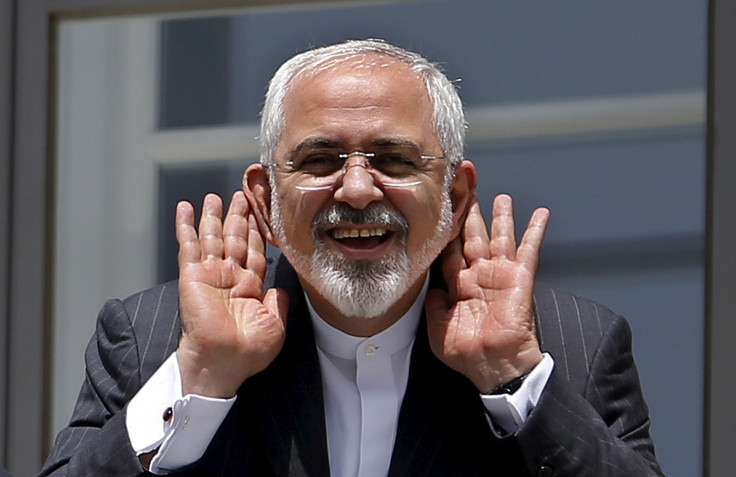Iran economic explosion: Which banks will be first to take the plunge?

An Iranian economic explosion is now on the cards after a historic nuclear deal struck with Western countries and the lifting of trade sanctions that will follow.
Iran has the world's fourth-largest oil reserves and second-largest natural gas reserves; the price of Brent crude has already taken a tumble at the prospect Iran adding to global supplies.
Brent Crude fell by 1.52% on Tuesday (14 July) after marathon talks by P5+1 officials resulted in a nuclear deal for Iran. West Texas Intermediate, another benchmark, fell by 1.84%.
Areas expected to rapidly evolve include banking and financial services, car manufacture, and airlines. Iran has a population of over 80 million, making it larger than the combined six-nation Gulf Cooperation Council.
The country now needs investment and fast, to upgrade its energy sector, and will be looking to foreign banks and financial institutions to throw their weight behind it.
Some US sanctions have built up over such a long period, comprising a web of both Executive Orders and Congressionally-mandated sanctions, that it could take a long time to unravel.
And then there is the question of being once bitten. In relatively recent history, a gaggle of big banks, most of them European, got slapped with sanctions and money laundering fines after having dealings with Iran.
It has been a commonly held view that the likes of BNP Paribas, Commerzbank, Deutsche Bank, Societe Generale, and Credit Agricole will be reluctant to go anywhere near Iran for fear of once again breaching money laundering strictures.
Anti-money laundering standards
A keyl issue for Central Bank of Iran (CBI) will be meeting anti-money laundering standards as quickly as possible. Iran has not introduced the Basel regime; it is unclear whether they will start with Basel II or go straight to Basel III. Without a robust regulatory system banks will be hesitant.
Rudi Lang, UK head of banking at accountancy firm Mazars, said: "When going to Tehran it was obvious that many Western firms are already preparing the path. You hear more American accents than you would expect.
"You can bet there are fund managers waiting to run on the pitch [saying] 'I want to be first to have Iranian companies in my portfolio'. The Iranian stock markets are also developed quite well (in the light of a galloping inflation)."
Iranian banks in London are all basically inactive, but interestingly they did not hand back their licenses. Neither the administration nor the regulators kicked them out during the crisis.
They all have decent capital but essentially no access to this. All are waiting for attractive trade finance business to come back.
In addition, Iranian banks face problems relating to a high percentage of non-performing loans, while the sorts of products offered and customer service are well behind the state of the art.
China and India's banks
One side effect of the US banking sanctions has been to attract banks from places like China and India, which have less business in America, and which do not believe their own countries would re-impose sanctions on Iran. These banks will be ready to provide the investment needed now the deal has been struck.
Iran became a founding member of the new China-led Asian Infrastructure Investment Bank, which aims to finance infrastructure development in the region, while relations with state-owned China Development Bank are reported to be strong.
Another likely market maker could be the State Bank of India, which has a long-standing presence in Iran.
Gulf banks may remain skittish thanks to the US crackdown on Dubai-based Noor Islamic Bank over transactions of billions of dollars from Iranian oil sales in 2011.
Lang added: "There is still a lot of work and investments needed in IT infrastructure. It is common to see Indian and Chinese consultants, not just Westerners.
"Nobody wants to miss the opportunity. German and Suisse banks are in the lead. Where others need to queue in front of consults to obtain visas, German passport holders get a visa on arrival."
Central Bank of Iran (CBI) Chief Valiollah Seif has been talking up the possibility of working with Germany.
At a meeting with a German economic delegation in Tehran last month he said: "Fluctuations have never prevented the expansion of good banking ties between the two sides."
He added that Iranian banks have settled their debts to German counterparts and that he hoped the current banking situation in Iran can provide the ground for commodity exchanges between the two countries.
At present, the European Union has imposed sanctions on Mellat, Sina, Melli, Refah, Saderat, Post Bank, Toseh Saderat, Aryan, Kargoshaei, Ayandeh, Iran and Europe, Tejarat, Ansar PLB, PLS, and the CBI.
Oil and Gas
The re-advancement of Iran onto the global energy stage is bound to cause upset. Iran shares the world's largest natural gas field with Qatar, which has become the world's biggest exporter of liquefied natural gas.
Iran has called for $230bn of investment in the petroleum sector, mostly to expand oil and gas production.
Western sanctions have cut Iran's oil exports by more than half: some 1.1 million bpd from 2.5 million bpd before 2012.
IBTimes UK contacted Opec for a reaction but was given a flat "no comment".
© Copyright IBTimes 2025. All rights reserved.






















